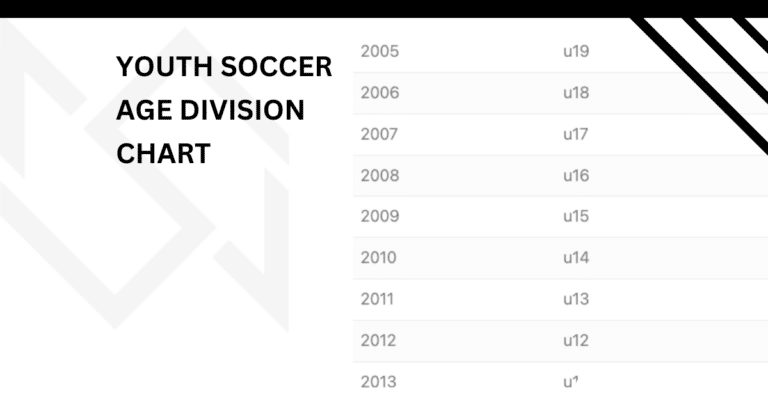How to Find the Best Youth Soccer Club for Your Child

Choosing the right youth soccer club for your child can be both an exciting and a daunting task.
With so many options in your area, it can be overwhelming to determine which club will provide the best experience for your child.
However, by doing proper research and considering a few key factors, you can find a soccer club that will help your child develop their skills, build friendships, and enjoy the game of soccer.
Selecting a Youth Soccer Club
One of the most important factors to consider when selecting a youth soccer club is the quality of the coaching staff and the reputation of the organization.
To start, look for clubs that have experienced and knowledgeable coaches who are committed to helping young players develop their skills. Research the coaches’ backgrounds and credentials, and ask other players and/or parents about their experiences with the club’s coaching staff.
Another important consideration is the club’s philosophy and approach to the game. Some clubs may focus primarily on winning games, while others prioritize player development and enjoyment of the game.
Consider what is most important to you and your child, and look for a club that aligns with those values.
Additionally, consider the club’s level of competition (leagues that they are part of) and whether it is appropriate for your child’s skill level and goals. Self-awareness during this process is critical.
Researching Youth Soccer Clubs
Online Research
The internet is a great place to start researching youth soccer clubs. You can easily find information on the clubs’ websites, social media pages, and online directories.
Remember to take everything you read online with a grain of salt. Not all information found online is accurate or up-to-date. Use multiple sources to verify the information you find.
In-Person Research
While online research can be helpful, it’s also important to visit the youth soccer clubs in person.
Here are some ways to conduct in-person research:
- Attend games and practices to observe the coaches and players in action.
- Talk to other parents and players to get their opinions on the club.
- Speak with the club’s director or coaches to ask questions and learn more about their programs.
- Try out some offerings by the club including various camps.
Make sure to take notes during your in-person research and compare your findings to what you learned online. This will help you make an informed decision when choosing a youth soccer club for your child.
Assessing Youth Soccer Clubs in the U.S.
Club Philosophy

When evaluating a youth soccer club, it’s important to consider its overall philosophy. This includes their approach to player development, team culture, and values.
Some clubs prioritize winning above all else, while others prioritize player development and long-term success. For most youth players, they need the latter.
Consider if the club’s philosophy aligns with your own goals for your child’s soccer experience.
Look for clubs that prioritize player development, sportsmanship, and a positive team culture.
Coaching Staff
The coaching staff is a crucial factor in a youth soccer club’s success. Look for clubs with experienced and qualified coaches who prioritize player development and have a track record of success.
Consider the coach’s communication style, coaching approach, and experience working with players of your child’s age and skill level.
Look for clubs that invest in their coaching staff’s professional development and provide ongoing training opportunities.
Facilities
The quality of a club’s facilities can have a big impact on your child’s soccer experience. Look for clubs with well-maintained fields, access to indoor facilities for inclement weather, and adequate equipment and supplies.
Consider the location of the club’s facilities and the amount of travel required for training and home games.
Player Development Opportunities
Player development is another consideration when looking for a new soccer club. Look for soccer organizations that offer opportunities for players to develop their skills and compete at a high level.
Look for clubs that offer a variety of programs and levels of play to accommodate players of different skill levels and interests.
For example, club’s that have different levels within the same age group are great for growing opportunities. A player that works hard, has the talent and continues to get better may be awarded the opportunity to be on a top team.
Consider the club’s approach to player development, including training methods, game strategies, and opportunities for exposure to college and professional scouts.
Evaluating Youth Soccer Clubs
Choosing the right youth soccer club is crucial for a player’s development and enjoyment of the sport. Here are a few things to consider when evaluating different clubs:
Tryouts and Evaluations
One of the first things to consider when evaluating a youth soccer club is their tryout and evaluation process.
Look for clubs that have a fair and transparent process for evaluating players, and that provide constructive feedback to players and parents.
It’s also important to consider the timing and location of tryouts, as well as the level of competition at the tryouts.
Here are some helpful recommendations on how to find success at tryouts.
Team Placement
Look for clubs that have a thoughtful and strategic approach to team placement, taking into account factors such as age, skill level, and player development goals.
It’s also important to consider the size of the club and the number of teams at each age level, as well as the level of competition that each team will face.
Cost and Fees
Unfortunately in the U.S., youth soccer is a pay-to-play system.
With this said, the cost of playing for a youth soccer club can vary widely, so it’s important to consider the financial implications of joining a particular club.
In general, you can expect to pay between $1,500 to $5,000 per year but this is dependent on the age, region and league they are in.
Look for clubs that are transparent about their fees and that offer financial assistance or scholarships to players who need it.
It’s also important to consider what is included in the fees, such as uniforms, equipment, and tournament fees.
When weighing out your options, it’s important to consider your family’s financial situation. As a parent, you don’t want to create unnecessary stress by prioritizing soccer over real life.
How to Join a Soccer Club
Registration Process
Joining a youth soccer club can be an exciting and rewarding experience for young players.
The registration process for most clubs is relatively straightforward.
Once you have identified a club, you will need to complete their registration process. This typically involves filling out an online registration form and submitting payment for club dues and other fees.
Most soccer clubs may also require a tryout or evaluation process to assess a player’s skill level and determine team placement.
Commitment and Expectations
Joining a youth soccer club requires a significant commitment from both the player and their family.
Most clubs have a set of expectations and guidelines that players and their families are expected to follow.
This may include attending all practices and games, maintaining a positive attitude, demonstrating good sportsmanship, and adhering to the club’s code of conduct.
What’s the Difference Between Travel Soccer and Club Soccer?

Travel soccer and club soccer are both forms of competitive soccer, but there are some differences between the two.
Travel soccer is a program where teams travel to other towns or cities to play games against other travel teams. These teams are usually made up of players who are selected through tryouts and are often more competitive than recreational teams. Travel teams typically practice more frequently and play a more extensive schedule than recreational teams but less than club soccer teams.
Club soccer, on the other hand, is a more comprehensive program that includes playing against other soccer clubs in the region (often out of state). Club soccer teams are usually more structured and organized than travel teams, with a focus on player development and improving skills. Club teams often hire professional coaches and trainers and may participate in higher-level tournaments and leagues.
Overall, the main difference between travel soccer and club soccer is the level of commitment and competitiveness required. Travel soccer is more focused on playing games against other town travel teams, while club soccer is more focused on player development and improving skills.
How Far Should I Travel to be on a Soccer Club?
The distance you should travel to be in a soccer club depends on your personal situation and priorities. Here are some factors to consider:
- Your level of commitment: If a player is very committed to playing soccer and wants to join a high-level club, your family may need to travel further to find the right fit. However, if you are more casual about soccer, you may prefer to join a local club that is more convenient to you.
- Availability of local clubs: Depending on where you live, there may not be many soccer clubs nearby. In this case, you may need to travel further to find a club that meets your needs. In NH, if we weren’t with our club, we would probably have to drive at least an hour to join another club.
- Time and cost: Traveling further to be on a soccer club may require more time and money for transportation, hotels, and other expenses. You should consider whether you are willing and able to make this investment and sacrifice. Sometimes it’s worth it and sometimes it’s not. This is a personal/family decision.
Will My Child Go Pro If They Play Club Soccer?
Probably not. There I said it 😉
Playing club soccer can be a great way for your child to develop their soccer skills and potentially increase their chances of playing at a higher level, such as college or professional soccer.
HOWEVER, no guarantee playing club soccer will lead to a professional soccer career.
Becoming a professional soccer player requires a combination of talent, hard work, dedication, and maybe a little dumb luck.
While playing club soccer can help your child improve their skills and gain exposure to college and professional scouts, it is just one piece of the puzzle.
It is important to remember that the vast majority of youth soccer players do not go on to play professional soccer.
However, playing club soccer can still be a rewarding and enjoyable experience for your child, and can help them develop important life skills such as teamwork, perseverance, and discipline.
Ultimately, the most important thing is to support your child’s love of the game and encourage them to work hard and pursue their goals, whether that means playing at the highest level or simply enjoying soccer as a hobby.
Conclusion
To wrap up, finding the best youth soccer club for your child requires careful research and consideration.
It’s important to take into account factors such as the club’s coaching staff, facilities, philosophy, and level of competition.
By asking the right questions and doing your due diligence, you can help ensure that your child has a positive and rewarding soccer experience.
Remember, the goal is to find a club that not only helps your child develop their soccer skills, but also fosters their love for the game and encourages good sportsmanship and teamwork.
If you have any questions about this article or finding a club, please send me a personal email at beau@soccernovo.com and I’d be happy to help you out!

Written By: Beau Bridges
Beau is the founder of SoccerNovo, dedicated to helping players and parents navigate the youth soccer landscape. As a former youth coach and soccer parent, he shares insights on player development, recruiting, and the ever-evolving soccer scene in the U.S.
Let’s connect






